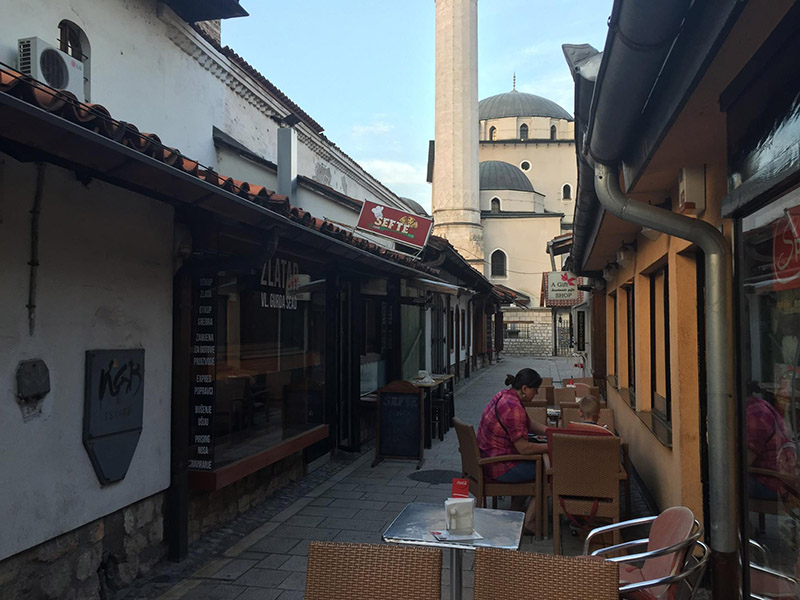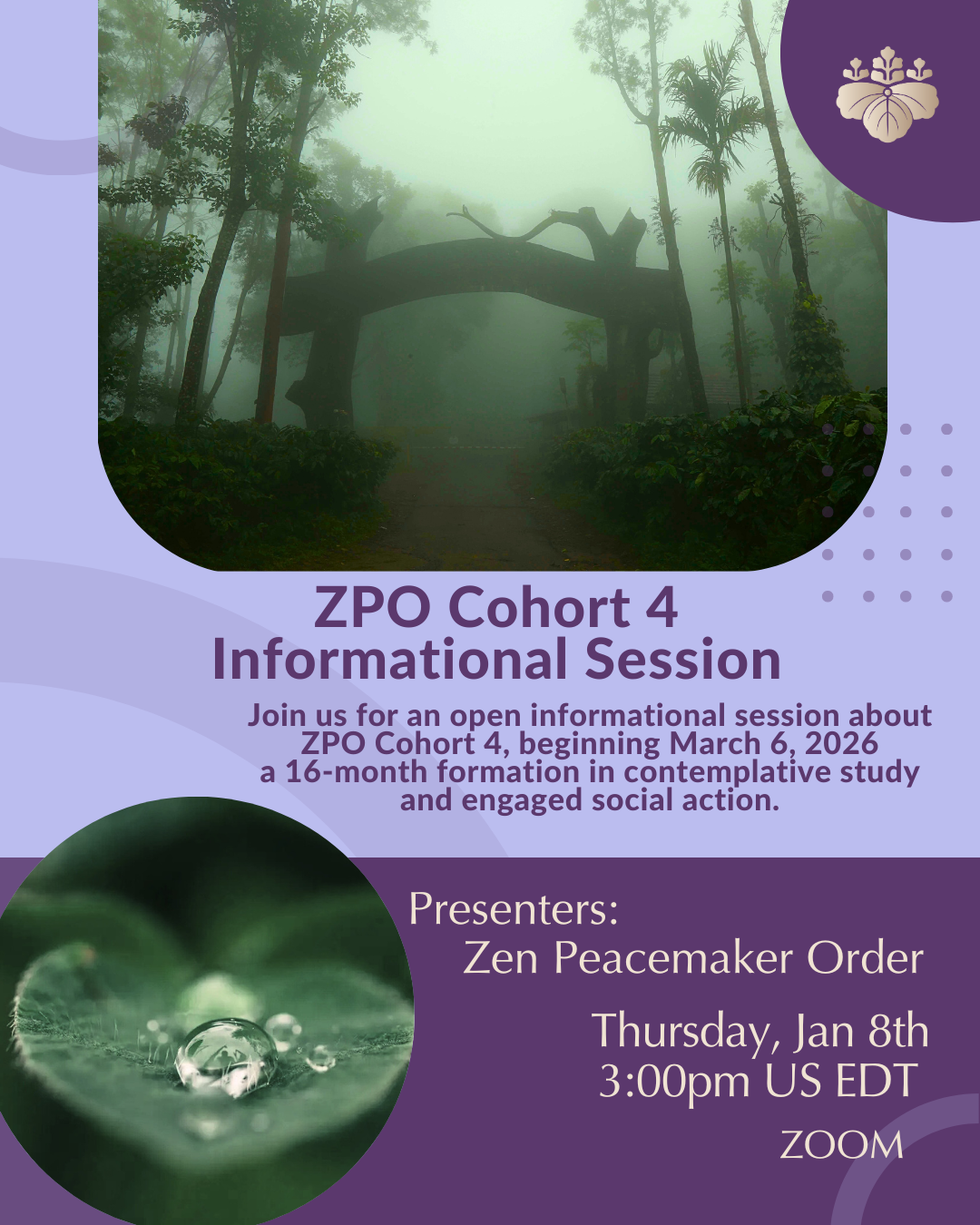NOTE: The Bosnia-Herzegovina Bearing Witness Retreat is the culmination of several years of development by American and European Zen Peacemakers with allies in that region. It is operated and managed by Zen Peacemakers Lowlands.
By Roshi Barbara Wegmüller, Spiegel Sangha
BERNE, SWITZERLAND. I remember a long car journey in 1967, traveling on holiday with my parents and our dog. My sister, four years my elder, was not with us as she was studying.
Our journey took us through Yugoslavia to a camp site on the beautiful beaches of Croatia.
My father gave me a history lesson on the country en route.
As a life-long political activist and committed social democrat, he found it exceptionally important to teach us daughters how to see historical connections at an early age. He was very dedicated to his political activities, and the many meetings of various committees meant he was often absent from family life.
Yet global politics was a regular topic at the dinner table.
Now, on this holiday trip, I heard about the assassination attempt in Sarajevo that led to the outbreak of the First World War, about the division of countries after the Second World War and about General Tito, whom I constantly saw from the car window, standing around in statue form.
The camp site was great, the view of the sea idyllic and the water clear.
I was 15 years old and, to my amazement, young men started to approach my parents after a few days, asking if I could go out with them. As students they spoke German to varying degrees.
And one day two mothers arrived with their sons, one after the other, asking my parents if they could marry me. My parents said no, I would be far too young.
Shortly afterwards both mothers embarked on a loud argument outside our tent – a frightening experience for me. I was horrified at the negotiations about whether I wanted to go out or get married that were happening right over my head, as if I wasn’t there and I cowered in the tent with a book and wanted to travel home as quickly as possible. This was a plunge for me, in a culture so much different than the one I was familiar with. I felt not being respected, but constantly observed by the young men as well as their mothers.
This experience affected me so deeply that Yugoslavia never featured in my holiday plans again.
As the war in Yugoslavia began in 1991 I didn’t have a lot of time for newspapers and TV as my five children – then aged 16, 14, 5 and 2-year-old twins – took all my time.
Our packed family life then left little room for world events.
However, as the violence increased in Bosnia in 1994-1995 and the news broadcast daily pictures of fighting and the exceptional desperation of the people, the horror entered our living room in TV and in newspapers.
I felt infinitely helpless and sad by what I saw. Violence, anger, fear in the faces of civilians and people in the various uniforms.
In 1996 at the birthday party for our 7-year-old twins, one of our sons sat at the table surrounded by his best friends. On his right, a black-haired, slim boy, a refugee from Sri Lanka; and on his left a blond little boy a refugee from the war in Bosnia.
Both children and their parents earned my respect for the efforts they made over the coming years to get to grips with the foreign culture of Switzerland and build a home here.
Both families were successful in doing so, as my son reported.
Shortly after the end of the war in Bosnia, one of my close Sangha friends started a project offering craniosacral and trauma therapy to war victims over a ten-year period, particularly aimed at the numerous women victims. The report she shared brought the stories of suffering of all those involved even closer to home for me. But she also told us about the endless generosity and hospitality she experienced, about the warm-hearted peoples she met in all this years.
Two years ago, one of my adult sons came back from a trip from Bosnia, deeply touched by the beauty of the country and the stories peoples shared with him.
It is an honour for me to participate in the retreat in Bosnia as a Spirit Holder.
I will be there to maintain the space of the retreat with all those who have committed to practice the three principles that help us to bear witness through the present, which is influenced by the past and which shapes the future.
From the timeless and non-judgemental space of Not knowing, we meet and bear witness to what is now in front of us and will find our answer in the process.
At this retreat, I hope that we will listen to all the voices that reach us, in the sense of Dschalal ad-Din ar-Rumi:
“Beyond ideas of wrongdoing and rightdoing, there is a field. I will meet you there.”
Roshi Barbara Salaam Wegmüller is a grandmother, a dharma successor of Bernie Glassman and a founding member of the Zen Peacemaker Order in Europe. She and her husband Roland are Zen teachers offering weekly Zazen practice in Spiegel, Switzerland and are actively supporting refugees in their area.


